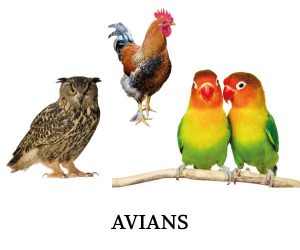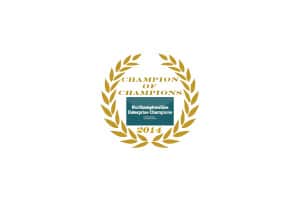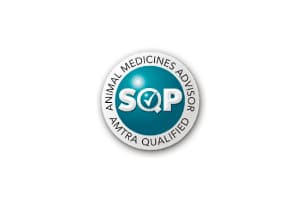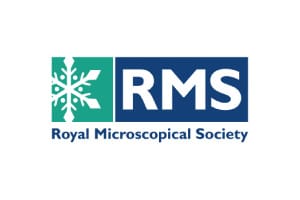Wormcounts for Avians
Wormcount.com screens provide a detailed insight into the internal parasitic health of your birds, including gastro-intestinal (gut) roundworms, tapeworms, gapeworm and coccidia. This enables targeted worming using the most appropriate treatment for the specific parasite burden. We can undertake screens on all species of birds; from domestic pets, to birds of prey, game birds and poultry.
All birds are capable of picking up parasite burdens, which can cause discomfort, weight loss, a reduction in egg laying (if applicable) and in severe cases can be fatal. Whether parasite control is an important commercial factor for your poultry farm, or whether you are concerned about a single pet or display bird, we are able to help. We offer single screens for individual birds of concern and we also offer flock/group sampling, whereby a representative pool sample is tested to indicate the group’s internal parasite presence.

Further Information
Wormcount.com gives you direct access to a fast, professional veterinary laboratory without the need for a referral from your Vet.
Our laboratory has been purpose designed with bespoke equipment and facilities, allowing us to provide a professional and high-quality service direct to the public and veterinary practices. All of our analysts undergo rigorous training before they undertake any testing. Even once approved for testing, they undergo regular ‘blind’ spot-checks and ongoing external personal development sessions to keep them at the forefront of the industry throughout their careers. Our strict bio-security and method procedures ensure safe, repeatable and accurate results from every sample as they transit through the lab.
We have an excellent customer service reputation and our administration and support teams are very welcoming of any queries you have or support you require at any stage of the process. Once you have your results, we will discuss any further action that is required. This may include a visit to a pet shop, the vet, or no action at this time.
- All screens are undertaken within our own laboratory by our highly trained analysts. Screens are undertaken on a sample of your animal’s faeces that you send to us in one of our specially designed collection kits
- A Faecal Egg Count provides a quantification of the number of worm eggs in your bird’s faeces (poo) which is therefore an indication of the number of adult female worms in your bird’s gut.
- Each species of worm egg is identified and, where appropriate, quantified to give an indication of the level of infestation.
- Worm egg screens also detect Eimeria (Coccidia) in the sample as standard.
- The worm egg screen results are presented in an email report as ‘eggs per gram’ (epg) of faeces. There is an easy to understand key on your Wormcount.com result sheet.
Some worms can appear as mature, egg-laying adults within a few weeks from being picked up as eggs or larvae by your bird. Regular screening is critical to knowing what is happening within your birds and allowing targeted treatment in a timely manner.
Birds are typically screened every three months and then treated if necessary, based on the results. If your birds are showing any signs or symptoms of a parasite burden, it is recommended that you undertake intermediary screens at that time. Individual birds or flock/group samples can be undertaken, depending on your requirements. Please see the section below regarding pool sampling for further information.
Where an individual bird is a specific cause of concern or is exhibiting symptoms separate from the rest of the group, or where the bird lives alone, they should always have their own individual screen. Where birds are housed and roam together, and where they are of the same species and of similar health, they can be treated as a group and a pool sample is appropriate.
A pool sample is formed by collecting fresh faecal samples at random from several birds, which is representative of the group of birds. The sample is homogenised in the lab and sub sampled, with multiple tests being undertaken across that combined sample. The results are averaged and reported as one single group result. Each bird is then treated the same within that group.
Unlike most other internal parasites within birds, which tend to be orientated around the digestive system, Syngamus trachea (Gapeworm) lives in the trachea. If left untreated, it can multiply and cause a blockage of the windpipe and can eventually be fatal. The blockage causes infested birds to stretch their necks, open their beaks and gasp for air. Other symptoms include loss of condition, loss of appetite, coughing and head shaking.
Gapeworm is screened for as standard on all Wormcount.com avian worm egg screens.
Eimeria (coccidia) is a protozoan which can live in the gut of infected birds. It typically spreads via birds picking up infected faeces either directly from the ground, or by accidentally ingesting infected faeces when preening. An abundance of coccidia within a bird can cause the disease coccidiosis. Symptoms of coccidiosis include blood and/or mucus in the stool, weight loss and anaemia. If left untreated, coccidiosis can be fatal. Treatment for coccidia in birds must come from a vet, as the licensed chemical for its treatment is within the category which requires a veterinary surgeon’s prescription.
Eimeria is screened for as standard on all Wormcount.com avian worm egg screens, which will allow your vet to prescribe appropriate medication if necessary.
Due to a limited number of chemical groups available for birds, wormers should only be used when necessary. Undertaking a worm egg screen allows you to decide whether treatment is required at that time, or to confirm whether your current worming programme is working.
Wormers for avians can be picked up from licenced pet shops or feed merchants (with appropriately qualified SQP/RAMA staff on site) or from a vet’s practice, depending on the parasite burden. There are various products available including additives to food or water, or complete feed mixes. Your local SQP will be able to advise you on the best product for your bird’s circumstances upon provision of a Wormcount.com results sheet. All positive results will indicate whether a vet’s prescription is necessary.

Testimonials






